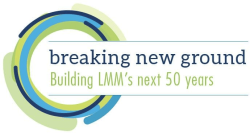As my internship with LMM comes to a close, I would like to formally express my gratitude to all staff members that have worked with me over these past 10 weeks. An especially big thank you to my supervisors Margie Glick, Director of Advocacy and Marcella Brown, VP of Development and Communications!
Admittedly, this internship was not pursued to further explore a career path in Management and Human Resources or with the lust for a greater knowledge of my field of study, but rather to dip my toes into something new, different, and therefore inevitably challenging. In the process, I have gained a broad appreciation of the community that I, that we are all, a part of. I am confident in my ability to better understand the challenges and adversities that LMM’s program participants face, in addition to the legislative policies that sometimes impact these individuals daily- whether for the positive or for the negative. As I leave this humbling opportunity, the hard work, and innovative thinking that LMM fosters have reinforced my faith and hope in a brighter future for all people.
As a part of my internship, I was asked to conduct a research project with the goal of further understanding an obstacle that LMM program participants face with the intent to then present a possible solution and/or advocacy-based response. I chose to explore LMM’s Youth Services Department and the at-risk youth it serves. My research focused primarily on female youth in the child welfare system; analyzing the potential impacts of increased exposure to trauma, specifically childhood sexual assault. Below, I have provided a brief summary of my findings in hopes of raising awareness.
The majority of foster care youth have experienced traumatic events before care, in addition to the traumatic event of being removed from their parents. Trauma exposure may include but is not limited to child abuse and neglect, domestic violence, community violence, incarceration of a parent, and sexual abuse.
Childhood sexual assault (CSA), also referred to as child molestation, is a form of child abuse in which an adult or older adolescent uses a child for sexual stimulation. Exposure to CSA can lead to victims suffering from behavioral difficulties, conduct problems, sexualized behavior, and can also lead to functional impairments such as difficulties with interpersonal relationships (peers and/or adults), difficulties in schools, and lower self-esteem. CSA is an antecedent to engagement in risky sexual behaviors- childhood sex trafficking, and transactional sex being two of those behaviors. Unfortunately, girls and women in the United States foster care and juvenile justice system are disproportionately exposed to CSA in comparison to their general population peers. Subsequently, this increased exposure to CSA positively correlates to an increased risk of victimization and/ or engagement in the child sex trafficking industry and transactional sex.
Child sex trafficking as defined by the National Center for Missing and Exploited Children is the “recruitment, harboring, transportation, provision, obtaining, or advertising of a minor child for a commercial sex act, which involves the exchange of anything of value such as money, drugs or a place to stay- for sexual activity.” Child sex trafficking is vastly prevalent in the United States. According to the Ohio Department of Health, human trafficking is one of the fastest-growing criminal industries in the world. Annually, the money illegally acquired through human trafficking is estimated to be more than $35 billion, which equals the profits earned by Starbucks, Google, and Nike combined. Ohio is ranked as high as fifth among all states in total that reported having human trafficking cases, with Toledo being identified as the fourth highest-ranking city in the nation for recruiting victims into illegal trade.
Transactional sex is the trading of sex for drugs and money. Adolescents in foster care who have histories of exposure to CSA are 2-4 times more likely to engage in transactional sex in comparison to their general population peers. Both victimization and/or engagement in either the child sex trafficking industry and in transactional sex are associated with a variety of health consequences, including but not limited to an increased risk of acquiring a sexually transmitted disease (HIV/AIDS), sustaining an injury as a result of physical or sexual victimization, having a mental health disorder such as depression, suicidality, substance abuse problems or addictions, and pregnancy resulting from rape or prostitution.
In acknowledging the impact and potential consequences of trauma exposure to CSA of female at-risk youth through advocacy work, social media outreach, relationships with community partners, and grassroots work, LMM can further work to ensure the safety and protection of this vulnerable population.
To learn more today:
https://www.childrensrights.org/newsroom/fact-sheets/child-sex-trafficking/
https://humantraffickinghotline.org
https://youthcollaboratory.org/resource/understanding-human-trafficking-legislation






